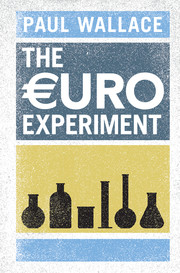Preface
Published online by Cambridge University Press: 05 December 2015
Summary
There are times when history speeds up and the early 1990s was one such juncture. The decision to create a single currency in a Europe of obdurately surviving nation states was audacious and its effects continue to reverberate. The elder statesmen of France and Germany who decided to jump-start history at the Maastricht summit of 1991 were seeking to answer an old and vexed question about the role of Germany in Europe, but they posed a new and also fraught one. Could the experiment of creating a monetary union of still sovereign countries work?
Both the launch of the euro, on schedule in 1999, and the first decade of the single currency seemed to suggest that the venture was feasible in practice as well as bold in spirit. The European Central Bank (ECB) established its credentials and the overall performance of the euro area was satisfactory. Despite the diversity of the member states and the lack of any genuine economic union, it appeared that an ever-growing number of countries, rising from eleven at the start to sixteen a decade later, could indeed share a common currency while retaining fiscal and political autonomy. Even banks, which lay at the heart of the monetary union, could remain under national supervisory control. Although historical experience suggested that a single money required a single state, the euro might prove to be an exception.
But the euro crisis was another time when history speeded up, in this case revealing the early sanguine assessment of the euro area's performance as largely illusory. The creation of the single currency paid an instant dividend for the countries on the periphery, by causing their interest rates to fall dramatically. It spurred a decade of easy credit that papered over the fact that the members in southern Europe had economies that were less able to cope with the rigours of the monetary union once the good times ended.
Between 2010 and 2012, the euro area came close to disintegrating as financial markets assailed the vulnerable economies, forcing one after another to seek bail-outs even though a founding principle of the union supposedly ruled out any such assistance.
- Type
- Chapter
- Information
- The Euro Experiment , pp. viii - xviPublisher: Cambridge University PressPrint publication year: 2015



